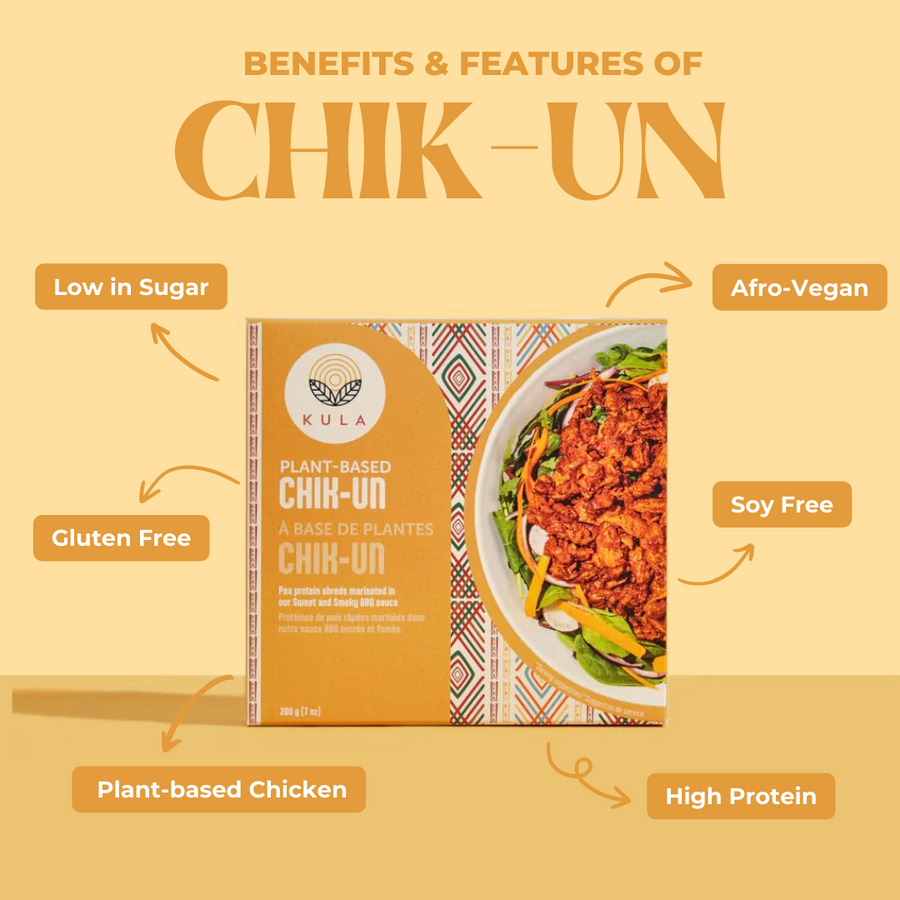Everything About Healthy Food: Advantages of Embracing Plant Based Alternatives
The conversation bordering plant-based diet plans has actually obtained substantial focus in recent years. Lots of people are discovering the prospective health advantages, dietary benefits, and ecological effects connected with these nutritional choices. As people become more mindful of their food's influence on well-being and sustainability, inquiries develop concerning the practicalities of embracing such a way of life. What specific modifications can one anticipate, and just how might these options reshape not just personal health and wellness yet likewise the earth's future?
Understanding Plant-Based Diet Plans
Although lots of people associate plant-based diet regimens primarily with vegetarianism or veganism, these diets can incorporate a wide variety of eating patterns that prioritize whole, minimally refined plant foods. Such diet regimens often include fruits, vegetables, entire grains, seeds, legumes, and nuts, while eliminating or limiting animal items. This versatility enables people to tailor their nutritional options according to personal preferences and nutritional requirements. Some may take on a mostly plant-based diet regimen while still occasionally consuming meat or dairy, commonly referred to as a flexitarian method. The emphasis continues to be on incorporating even more plant foods, which can result in a varied range of flavors and meals. Comprehending these different interpretations of plant-based consuming is important for appreciating its access and appeal in modern food society.
Wellness Perks of Plant-Based Foods
The wellness benefits of plant-based foods are considerable, using a nutrient density benefit that supports total health. Study shows that these foods can enhance heart wellness and play a crucial function in reliable weight management. By integrating much more plant-based alternatives, people might improve their nutritional options and advertise lasting wellness.
Nutrient Density Benefit
Nutrient thickness plays an important function in the wellness benefits of plant-based foods, making them an engaging selection for those looking for a balanced diet. Plant-based foods, such as fruits, veggies, beans, nuts, and entire grains, are often abundant in necessary vitamins, minerals, and anti-oxidants while being reduced in calories. This high nutrient thickness enables people to take in less calories while still meeting their dietary demands. Furthermore, these foods are loaded with dietary fiber, advertising digestive system health and wellness and aiding in weight monitoring. By integrating nutrient-dense plant-based choices, consumers can boost their general health, sustain their immune systems, and minimize the risk of chronic diseases. Inevitably, the nutrient density of plant-based foods underscores their value in a health-conscious way of living.
Heart Wellness Improvement

Weight Management Assistance
Along with promoting heart health and wellness, a plant-based diet regimen can substantially assist in weight management. This dietary strategy stresses whole foods such as fruits, vegetables, beans, nuts, and entire grains, which are generally lower in calories and higher in fiber contrasted to animal-based items. The high fiber content aids raise satiety, decreasing overall calorie intake. Moreover, plant-based diet plans are typically abundant in essential nutrients while reduced in unhealthy fats, making it much easier to keep a healthy weight. Sugar Free Sauces. Study shows that individuals that take on a plant-based way of life have a tendency to have lower body mass indexes (BMIs) and experience more effective weight loss contrasted to those that take in meat-heavy diets. Welcoming plant-based options is a strategic option for efficient weight administration.
Nutritional Value of Plant-Based Ingredients
Plant-based active ingredients are rich in essential nutrients, providing a diverse array of vitamins, minerals, and antioxidants that add to general health. A contrast of protein sources exposes that while animal products are frequently checked out as superior, several plant-based choices give appropriate protein and various other valuable compounds. Understanding the dietary value of these ingredients can assist people make educated nutritional choices.
Essential Nutrients in Plants
Nutrient-rich active ingredients found in plants offer a diverse selection of important nutrients that contribute greatly to general health. These active ingredients are rich in vitamins A, C, and K, which sustain immune function, vision, and blood clot, respectively. Additionally, plants supply vital minerals such as magnesium, calcium, and potassium, essential for heart wellness, muscular tissue feature, and bone stamina. The visibility of fiber in plant-based foods aids digestion and advertises a healthy click now digestive tract microbiome. Anti-oxidants, found abundantly in fruits and vegetables, assistance combat oxidative stress and decrease swelling. In addition, several plant foods are reduced in calories yet high in nutrients, making them an exceptional selection for those looking for to preserve a healthy weight while making sure ideal nutrient intake.
Contrasting Protein Sources
Healthy protein sources vary substantially in their nutritional profiles, with plant-based active ingredients offering one-of-a-kind advantages. Unlike pet proteins, which commonly have hydrogenated fats and cholesterol, plant proteins often tend to be reduced in these unhealthy elements. Legumes, nuts, seeds, and whole grains are abundant in important amino acids, fiber, vitamins, and minerals. Lentils provide high healthy protein material together with considerable iron and folate, while home quinoa is a full protein, providing all 9 essential amino acids. Additionally, plant-based proteins are usually come with by anti-oxidants and phytochemicals that sustain general health. The shift to plant-based healthy protein resources not only improves dietary intake yet also aligns with sustainable nutritional techniques, reducing environmental influence and promoting long-term health benefits.
Ecological Effect of Plant-Based Eating
As recognition of climate adjustment grows, several individuals are exploring lasting dietary selections that can significantly lessen their ecological impact. Plant-based eating has become a considerable factor to minimizing greenhouse gas emissions, which are largely associated with livestock production. The cultivation of fruits, legumes, vegetables, and grains usually calls for fewer resources, such as water and land, compared to animal farming. Furthermore, plant-based diet plans can bring about decreased logging, as much less land is required for grazing livestock or expanding pet feed. By moving towards plant-based choices, customers can sustain biodiversity and advertise healthier environments. In general, embracing plant-based eating not just benefits individual wellness however additionally stands for a vital action toward ecological sustainability and conservation initiatives.
Overcoming Common Misconceptions
While numerous people recognize the benefits of a plant-based diet regimen, numerous mistaken beliefs usually hinder them from completely welcoming this lifestyle. A common belief is that plant-based diets lack enough protein; nevertheless, countless plant sources, such as legumes, nuts, and tofu, give ample protein. Furthermore, some presume that this diet regimen is costly, when actually, staples like beans, rice, and seasonal veggies can be rather budget-friendly. An additional misconception is that plant-based eating is extremely limiting, whereas it in fact provides a varied selection of flavors and foods. Numerous fret that a plant-based diet regimen might lead to shortages, yet with proper preparation, people can obtain all necessary nutrients, including minerals and vitamins, while delighting in a vast variety of scrumptious meals. Vast Tips for Transitioning to a Plant-Based Lifestyle
Making the change to a plant-based lifestyle can be an enriching experience, though it often requires some advice to navigate the first changes. First, people are encouraged to begin gradually, including even more fruits, veggies, beans, and whole grains right into their dishes while lowering meat and milk intake. Dish preparation is essential; preparing a weekly menu can aid alleviate the modification and prevent final unhealthy options. Checking out brand-new recipes and cooking techniques can additionally preserve and enhance great site the experience exhilaration concerning plant-based eating. Furthermore, signing up with support groups or communities can provide inspiration and share useful ideas. Lastly, staying notified regarding nutrition guarantees balanced dishes, preventing shortages while fostering a healthy and balanced, satisfying plant-based way of living.
Delicious Plant-Based Dish Concepts
Exploring scrumptious plant-based meal concepts can influence people to embrace a more nourishing diet. One prominent option is a passionate quinoa salad, featuring cherry tomatoes, cucumber, and a tangy lemon-tahini clothing. Another fave is a savory lentil stew, loaded with carrots, celery, and aromatic natural herbs, perfect for a reassuring dinner. For breakfast, over night oats made with almond milk, chia seeds, and covered with fresh berries supply a nourishing begin to the day. Furthermore, a vivid veggie stir-fry with tofu and a variety of vibrant veggies can be a fast yet pleasing meal. Lastly, luscious avocado salute on whole-grain bread, sprinkled with seeds and spices, provides a basic yet tasty snack. These dishes display the variety and splendor of plant-based eating.

Regularly Asked Questions
Can a Plant-Based Diet Provide Sufficient Protein?
The concern of whether a plant-based diet regimen can provide adequate protein prevails. Countless sources, consisting of vegetables, nuts, seeds, and whole grains, can meet protein needs effectively, sustaining a nutritious and well balanced diet regimen for people.
Are Plant-Based Diets Ideal for Children?
The viability of plant-based diets for kids relies on mindful planning. Adequate nutrients have to be assured, including minerals, healthy proteins, and vitamins. With proper guidance, such diets can sustain healthy and balanced development and development in kids.
How Do I Eat in restaurants on a Plant-Based Diet plan?
Eating out on a plant-based diet plan includes looking for dining establishments with varied food selections, requesting for modifications, and discovering vegan-friendly alternatives. Planning ahead and connecting nutritional preferences can boost the dining experience while maintaining dietary choices.
What Are Typical Allergens in Plant-Based Foods?
Common irritants in plant-based foods consist of soy, gluten, nuts, and seeds - Gluten Free BBQ Sauce. Individuals complying with a plant-based diet plan ought to be mindful of these irritants and check out tags thoroughly to prevent negative responses and ensure risk-free consumption
Can Plant-Based Diets Aid With Weight Reduction?
Study suggests that taking on a plant-based diet plan may help with weight loss due to its generally reduced calorie thickness and greater fiber material. This combination can improve satiation, helping individuals handle their calorie intake properly. Lots of people associate plant-based diets mainly with vegetarianism or veganism, these diet regimens can incorporate a wide array of eating patterns that prioritize entire, minimally refined plant foods. Nutrient density plays an essential duty in the health benefits of plant-based foods, making them a compelling selection for those seeking a balanced diet plan. Plant-based diet regimens have been shown to markedly enhance heart wellness, as they typically consist of elements that sustain cardiovascular function. In addition to promoting heart health, a plant-based diet can substantially help in weight management. A typical belief is that plant-based diets do not have enough healthy protein; nonetheless, numerous plant sources, such as vegetables, nuts, and tofu, offer enough protein.